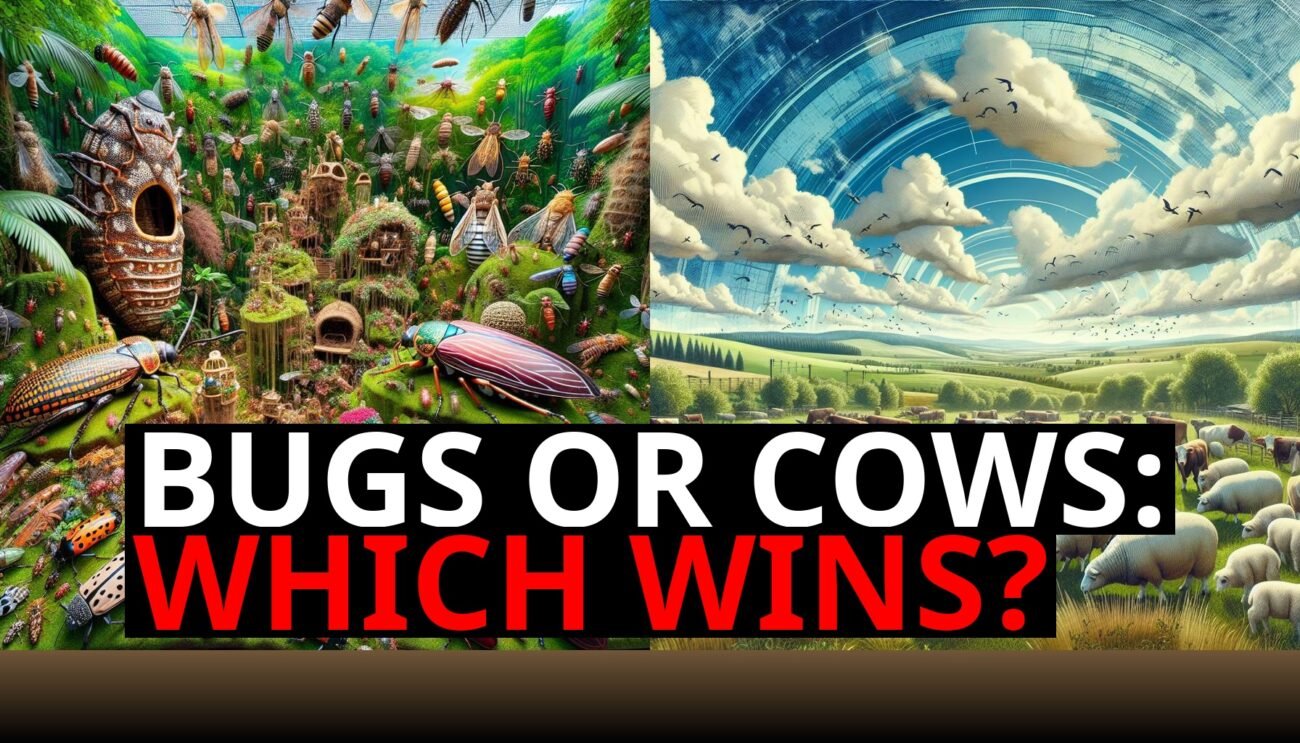In recent years, a growing movement has emerged in the West advocating for eating insects as a sustainable solution to global food challenges. These pro-bug advocates often point to cultures in Asia, Africa, and Latin America where bugs are regularly consumed, framing this as an enlightened, eco-friendly practice we should all embrace. But here’s the problem: bug-eating traditions in these regions are being misappropriated by the West without a true understanding of their cultural significance.
This is more than just a misunderstanding—it’s a form of cultural appropriation. Let’s dive into how pro-bug advocates are using insect-eating traditions for their own agenda, without considering the deeper cultural context behind these practices.
Bug-Eating In The West: A Trend Without Understanding
In many Western countries, eating insects is seen as a new and trendy idea. Advocates claim that bugs are the food of the future, offering a low-impact, sustainable source of protein that could help solve global food shortages. They often cite the fact that people in countries like Thailand, Mexico, and Uganda have been eating bugs for centuries as proof that insect consumption is both normal and beneficial.
But this trend overlooks something crucial: the reasons why people in these cultures eat bugs aren’t as simple as “it’s good for the planet.” In many cases, insect consumption is tied to specific environmental conditions, seasonal availability, or economic necessity. For some, it’s a matter of survival rather than a deliberate choice.
When pro-bug advocates in the West promote insect eating without understanding these factors, they are effectively cherry-picking a practice from another culture and stripping it of its context. This isn’t cultural appreciation—it’s cultural appropriation.
The Realities Of Insect Consumption In Other Cultures
In many regions, bug-eating is more about necessity than preference. Take, for example, parts of Southeast Asia where insects like crickets and grasshoppers are consumed. While these bugs are indeed part of the diet, they aren’t necessarily the go-to choice when other protein sources, like fish or meat, are available. People in these regions often turn to insects because they are cheap and plentiful, especially during certain seasons.
In some African communities, locusts are eaten during swarms as a way to both mitigate crop damage and take advantage of an abundant, temporary food source. Again, it’s about using what’s available in the environment to make the best of a challenging situation.
This is a far cry from the Western narrative that insect-eating is a sustainable and forward-thinking choice. In these cultures, bugs are often seen as a last resort or an opportunistic food source, not a staple. By ignoring this context, the pro-bug movement is distorting the true meaning of these practices.
Stripping Away The Cultural Meaning
One of the hallmarks of cultural appropriation is taking a tradition out of its original context and using it for commercial or ideological purposes. This is exactly what’s happening with the pro-bug movement in the West. By promoting bug-eating as a solution to food sustainability, advocates are stripping away the cultural significance of these practices and turning them into a marketing tool.
In cultures where insect consumption is common, bugs are often linked to traditions and ceremonial practices. For example, in Mexico, chapulines (grasshoppers) are a traditional food that has been eaten for centuries, particularly in the state of Oaxaca. They are sold in markets, especially during certain seasons, and are often consumed with specific spices, reflecting the local cuisine’s rich history.
But when Western advocates push for insect consumption on a global scale, they are treating bugs as just another commodity, ignoring the deep-rooted cultural connections that these foods hold for the people who have been eating them for generations. This oversimplification reduces these traditions to little more than a trendy talking point.
The Double Standard: Exoticizing Other Cultures
Another troubling aspect of the pro-bug movement is the way it tends to exoticize and romanticize the food practices of non-Western cultures. Advocates often highlight the fact that people in other parts of the world eat bugs as a way to suggest that the West is somehow behind the curve when it comes to sustainable eating.
But this narrative overlooks the double standard at play. In the very cultures where bug-eating is part of the local tradition, people may not see insects as an ideal food. In fact, many would prefer more conventional protein sources like meat, fish, or eggs if they were more affordable or available. The Western fascination with bug-eating turns a practice that, for many, is tied to poverty or necessity into a symbol of progress.
This approach not only distorts the realities of these cultures but also perpetuates a kind of cultural superiority, where Westerners position themselves as the ones who will decide what parts of other cultures are worth adopting—without engaging with the people from those cultures or their lived experiences.
Cultural Appropriation Vs. Cultural Appreciation
There’s a big difference between cultural appreciation and cultural appropriation. Cultural appreciation involves understanding, respecting, and honoring the traditions of other cultures, while cultural appropriation takes those traditions out of context and uses them for personal gain or ideological purposes.
In the case of insect consumption, true cultural appreciation would involve:
- Acknowledging the specific reasons why people in certain regions eat bugs, including environmental and economic factors.
- Engaging with the people from those cultures to better understand the meaning behind these food practices.
- Respecting the fact that what works in one culture may not necessarily translate to another without losing its original significance.
Instead, what we often see is a form of cultural cherry-picking, where pro-bug advocates highlight the fact that some people eat bugs without digging deeper into the why. They use this surface-level understanding to push their own agenda, ignoring the broader cultural context and the voices of the people who actually practice these traditions.
Conclusion: Bugs Are More Than A Trend
While the idea of eating bugs may be gaining traction in the West, it’s important to recognize that this practice carries a different meaning in the cultures where it has long existed. By reducing insect consumption to a sustainability trend, pro-bug advocates are engaging in a form of cultural appropriation that strips these practices of their deeper significance.
If we truly want to embrace global food practices in a way that respects and honors other cultures, we need to go beyond the surface. It’s not enough to simply point out that people in other parts of the world eat bugs—we need to understand why they do and what those practices mean within their specific cultural contexts. Only then can we approach this conversation with the respect and understanding it deserves.













